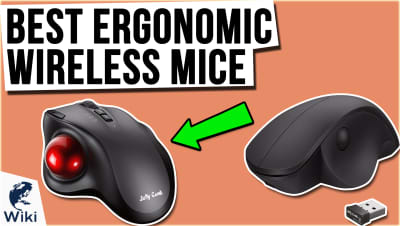5 Organizations Providing Medical Supplies And Improving Health Care Worldwide
The sad truth of the world today is that not everyone has access to the advances of modern medicine because of politics, geography, and economics. These organizations are working to change that, providing equipment, knowledge, and resources all over the globe to help those in need have access to quality care. This video was made with Ezvid Wikimaker.
5 Groups Improving Health Care In Places That Need It Most
| Name | Mission | Where They Work |
|---|---|---|
| Evidence Action | Scales evidence-based and cost-effective programs to reduce the burden of poverty for hundreds of millions of people, with an emphasis on providing clean water and reducing parasitic worm infection | Nigeria, Uganda, Kenya, Pakistan, India, Malawi |
| Brother's Brother Foundation | To promote international health and education through the efficient and effective distribution of donated medical, educational, and agricultural resources | Has worked in more than 140 countries |
| MedShare | Seeks to improve quality of life by sourcing and directly delivering surplus medical supplies and equipment to communities around the world, and providing biomedical equipment training and service to health care organizations and medical professionals serving populations in need | More than 100 countries served |
| Solidarity Bridge | Rooted in the tradition of Catholic social justice and a spirituality of solidarity, works in partnership with the medical communities of Bolivia to increase access to safe, essential, and timely surgical care | Bolivia and Paraguay |
| National Association of Free & Charitable Clinics | Strives to ensure that the medically underserved have access to affordable, quality health care | United States |
Evidence Action's Dispensers for Safe Water Program
Facts About Water, Sanitation, and Disease
- According to the World Health Organization, as of 2017, 785 million people lacked even a basic drinking-water service, and 2 billion used a source contaminated with feces
- Some common waterborne diseases include diarrhea, cholera, dysentery, typhoid, E. coli and salmonella infection, cryptosporidiosis, hepatitis A, viral gastroenteritis, and polio
- In the least-developed countries, 22% of health care facilities have no water service
- According to the United Nations and UNICEF, one in five girls of primary-school age are not in school, compared to one in six boys. Girls are more likely to be responsible for collecting water for the family, making it difficult for them to attend school
- An estimated 801,000 children younger than 5 years of age perish from diarrhea each year, or 2,200 each day
- 319 million people in Sub-Saharan Africa are without access to a reliable drinking water source
- Half of the world's hospital beds are filled with people suffering from a water-related disease
- Every $1 invested in water and sanitation returns an average of $4 in increased productivity
- Every 2 minutes, a child dies from a water-related disease
- According to World Vision, roughly 2.6 billion people have gained access to clean water in last 25 years
- 80% of wastewater flows back into the ecosystem without being treated or reused
The Important Work of The National Association of Free and Charitable Clinics
In Depth
Communities worldwide in need of medical supplies and health care can lack the proper access and must rely on outside organizations to assist them. Doctors, philanthropists, and scientists regularly combine their expertise and resources to create institutions to address these issues. Whether it's for communities in Africa, Bolivia, or even the United States, consider supporting the organizations listed here in no particular order.
First up at #1 we have, Evidence Action, an organization dedicated to improving the lives of millions of people across Africa and Asia. They operate in six countries across the globe delivering assistance where the need and opportunity are greatest. Evidence Action focuses on identifying evidence-based interventions, pressure-testing them for scalable feasibility, and designing them to serve millions. They identify innovative financing mechanisms and build best practice operational models.
One such intervention is the Dispensers for Safe Water program, a simple solution to the problem of unsafe water in rural and remote communities. They place chlorine dispensers in the immediate vicinity of wells and other sources. Community members can fetch water, which the chlorine disinfects, so that it is clean and safe for a few days. Evidence Action relies on donations in order to fund their projects. Consider visiting their donation page and making a contribution.
Evidence Action relies on donations in order to fund their projects.
Coming in at #2 is, Brother's Brother Foundation, or BBF, which began in 1958 to help those around the world who lack proper healthcare, education, and nutrition. Its founder, Dr. Robert A. Hingson, urged that BBF's resources be shared with local counterpart organizations in developing countries that shared the common desire to help those in need. In the following 60 years, BBF has helped people in 149 countries, through hospitals, schools, and many other local organizations.
BBF is devoted to the mission of improving world health through steady distribution of medical supplies to clinics and physicians worldwide. Large donations of pharmaceuticals and surgical instruments have allowed numerous communities to gain access to proper care. In addition, BBF's Med-Surg Trip Program supports medical student teams, non-profit organizations, and religious groups traveling abroad by providing them with pharmaceuticals and supplies for their trips. If you would like to help the group in its mission, visit their donation page to learn more.
Next at #3 we have, MedShare, a humanitarian aid organization founded in 1998 with the goal of connecting the large amount of discarded medical supplies with the critical needs of underserved populations. MedShare is dedicated to improving quality of life by sourcing and delivering surplus medical equipment to communities in need around the world. This helps increase health system capacity and sustainability by not only providing resources, but by reducing the global carbon footprint as well.
MedShare is dedicated to improving quality of life by sourcing and delivering surplus medical equipment to communities in need around the world.
To address the dilemma of donated medical equipment sitting idle in healthcare facilities, MedShare invests significant time and resources in training and repair to provide the highest quality equipment to their beneficiaries. It is vital for facilities to have functioning medical technology in order to provide for safe treatment, and MedShare relies upon the generosity of others to continue their mission. Consider making a contribution to assist in their mission.
Arriving at #4 is, Solidarity Bridge, an organization rooted in the Catholic faith and its tradition of social justice. They seek a just, compassionate, and interdependent world, where the health needs of those most vulnerable are prioritized and medical professionals have the necessary resources to serve their communities. Solidarity Bridge partners with communities in Bolivia and Paraguay to increase access to safe, affordable surgery and other essential health care.
Their closest partner is their sister organization in Bolivia, Puente de Solidaridad, headquartered in Cochabamba. They play a critical role in maintaining relationships with partner hospitals and doctors throughout Bolivia. In addition, they employ social workers responsible for screening surgical patients for financial eligibility, and for overseeing follow-up care. In the United States, partner hospitals can support Solidarity Bridge through medical supply donations, missioner recruitment, financial support, and more. Visit their donation page to find out more and become a donor.
They play a critical role in maintaining relationships with partner hospitals and doctors throughout Bolivia.
Finally, at #5 we have the National Association of Free & Charitable Clinics, which was founded in 2001 by a group of grassroots medical providers and organizers. They recognized that health care was not being provided at a local level to the working poor, uninsured, and underinsured in the US in a way that was accessible and affordable. The mission of the group is to ensure that the medically underserved have access to affordable quality health care.
The N.A.F.C. believes it is their advocacy of quality national health care for all that motivates donors and volunteers to join their cause and embrace the values of volunteerism, generosity, and human dignity. Their clinics provide a wide range of services for the medically underserved throughout the nation via a nonprofit model. Those interested in making a contribution or becoming a volunteer can find out more on their website. Consider donating time or aid if you would like to help.


















